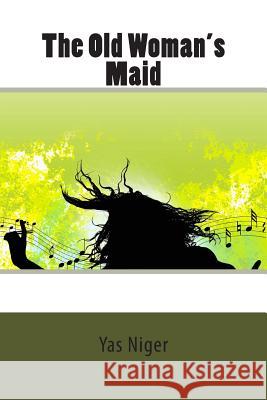The Old Woman's Maid » książka
The Old Woman's Maid
ISBN-13: 9781507699997 / Angielski / Miękka / 2015 / 48 str.
This is mainly the narration of the maid of an ailed old woman. The maid tells of how the feeble old woman made her way through life with very little help, how she had started rather late but managed well, on her very own. The old woman's maid tells the story as a privileged listener eavesdrops, and it is this disguised listener's narration of the maid's story, combined with his own personal experiences, that makes up the multiple narrations. It reads like a series of interwoven short stories, with a relationship that indefinitely unfolds into one conundrum of life's complexities and the thrill of its continuous struggles. Stories are teachers and are molded to have an impact on lives. They register morals that impart on character and norms. If they give off a trace of the forbidden in fair light, then culture and its future may suffer for it. As the young grow, their paws seek everything. Their teeth playfully bite the soft or the hard with innocence and very little comprehension. They would attempt to caress fire until it burns them. Everything is attractive to their naive and simple curiosity. They grow into the seasons that equip them with experience. Seasons come and seasons go. None is first, none is last, for they come and go in their mild and in their harsh, as a loose fitting circle, reflective of the daily striving continuous spiral spin that rotates round and round. The timeless survey of logic doesn't give it stature, even if it identifies a form for it because no single day start a season or indeed end one, no matter how melodramatic it turns out to be. Every season builds into what it must be and this story leads to the subsequent finality the suspense and emptiness of all unravels into. Life tends to congregates us in one loving hub of family and friends, wooing us to share love for one another, as it educates us with the knowledge of our inevitable end and final separation. But it never empowers us with the secret of bearing its insipid emptiness and harsh betrayal. It is cruel and not truly fair. This tale brings to fore this subtle living cruelty. The narration touches on the pretense in religious probity and tells of the travails of a majority of women. It is a tale that comfortably touches on the controversy in proper romance, when convenience is substituted for affection purely because it is deemed proper. It tells of the cumbersome disguise of the chauvinistic African custom amidst these unstable and unchanging times, as people seek for what is their idea of heaven. But most of all, it is loosely the story of man's failed stewardship as the perpetual maid of the ailing old woman his planet of permanent residence, truly is."
Zawartość książki może nie spełniać oczekiwań – reklamacje nie obejmują treści, która mogła nie być redakcyjnie ani merytorycznie opracowana.











